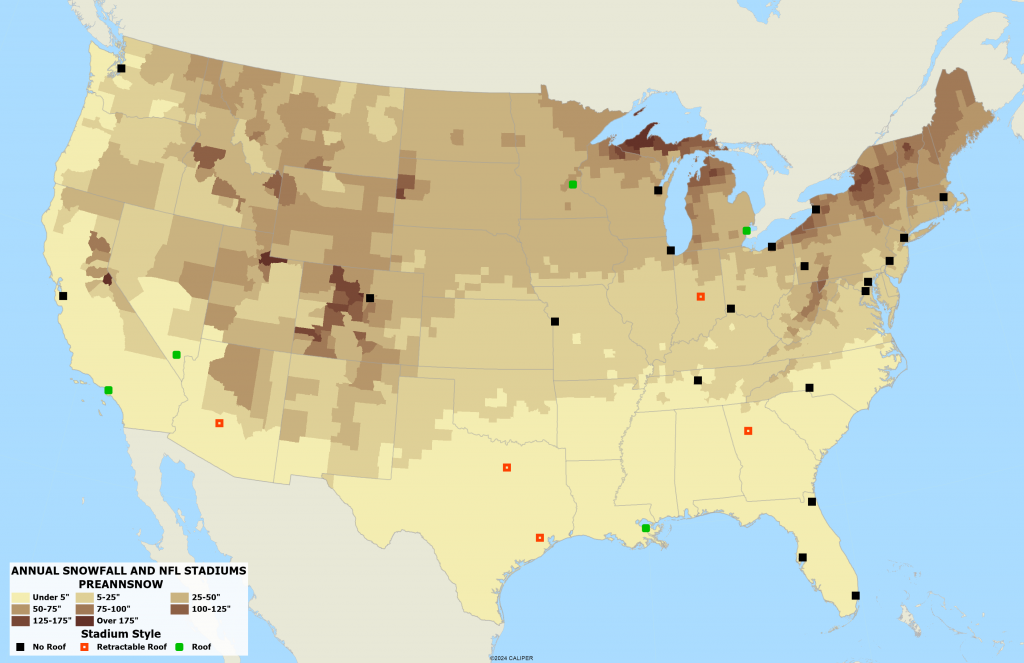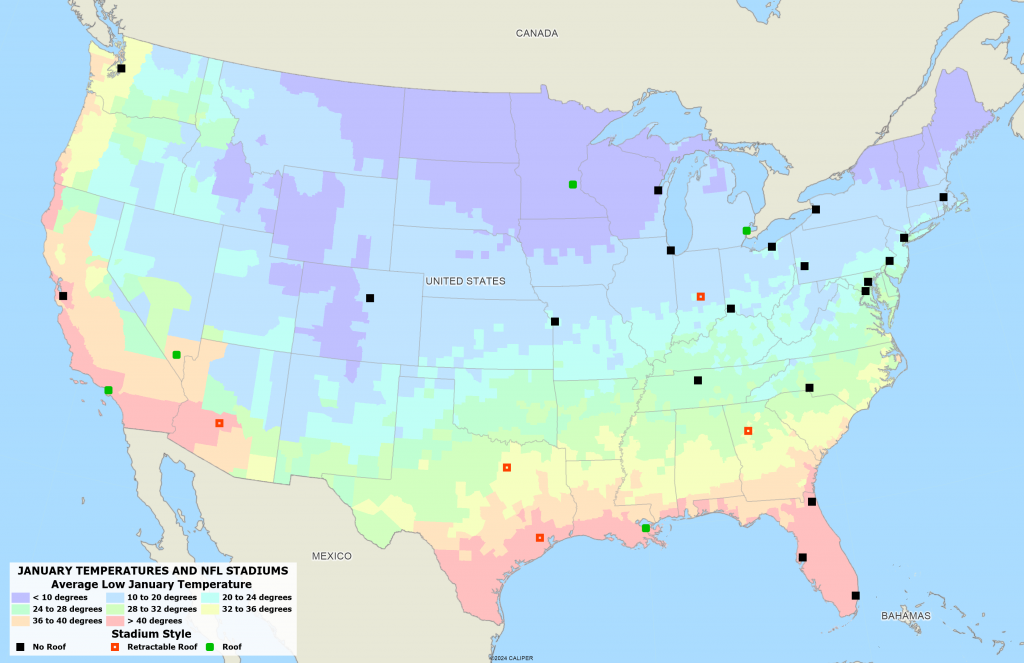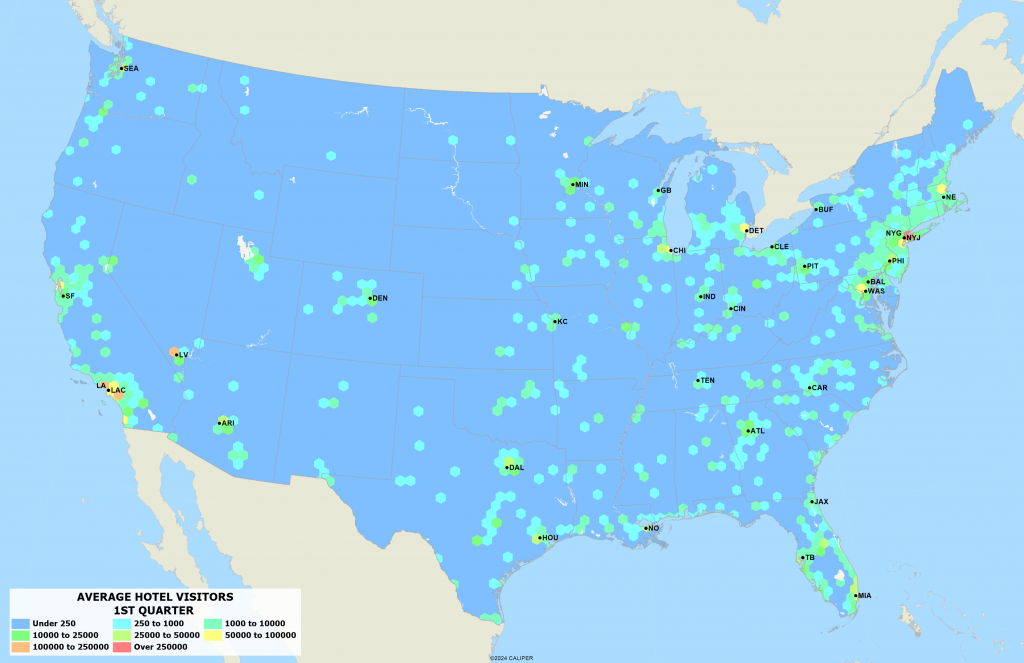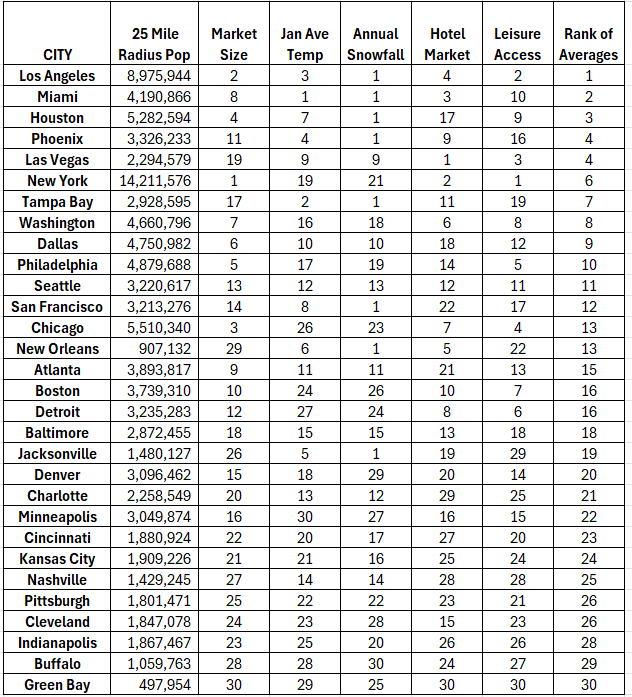We hear it every year around this time, complaints from northern teams that their cities never get to host the Super Bowl. The last five host cities for the Super Bowl, including 2025, are New Orleans, Las Vegas, Phoenix, Los Angeles and Tampa. And why, perchance, don’t you want to go to Minnesota in February? Well, it’s obvious: the weather. What if we added other variables? Could we once and for all show the best cities to host the Super Bowl?
So, what are the factors that determine if a city is a good location for a Super Bowl? Weather obviously must be a factor, as the game is played in February when a lot of the country is covered in snow, or at least cold temperatures. Market size also plays a factor in the NFL’s decision, as that adds to viewership, both in person and on broadcasts. Speaking of fans coming to town, there needs to be places for them to stay, so hotel availability is key. Finally, while the Super Bowl is the main event, the city needs to offer something else to do, and access to leisure activities like casinos, bars, nightlife and other sporting events is important to the overall Super Bowl experience and are the things that truly bring in big money to local businesses in the host city.
The following maps show some of the variables that we used to determine the rankings. First, the annual snowfall map shows areas that experience high amounts of snowfall, down to areas that have none. The second map shows January temperatures, because even if there isn’t snow on the ground, some of these cities have open air stadiums that would simply be too cold for fans to sit through comfortably. Both weather-based maps also show which stadiums are open air, retractable roof or fully enclosed. Finally, the last map shows the average Q1 overnight hotel guests.



Now for the full rankings. For our purposes, the bigger the market size, the better, the same with access to leisure activities and hotel market score (the ratio of hotel stayers divided by the population shows how touristy an area is). For weather, a higher average daily temperature gets you a higher score, while higher amounts of annual snowfall gets a lower ranking. It should be no surprise that Los Angeles comes out on top—favorable weather, no snow, a big market with lots to do and lots of hotel rooms. Rounding out the top 5 are Miami, Houston, Pheonix and Las Vegas, all of which have been a host city in the last 9 years. Just outside the top 5 is New York, which won’t qualify because the NFL won’t select a market with an average temperature of less than 50 degrees without an enclosed roof stadium. That rule came into place in 2014, ironically the last time that a Super Bowl was played in New York. Where does your city land? The full rankings are below.

